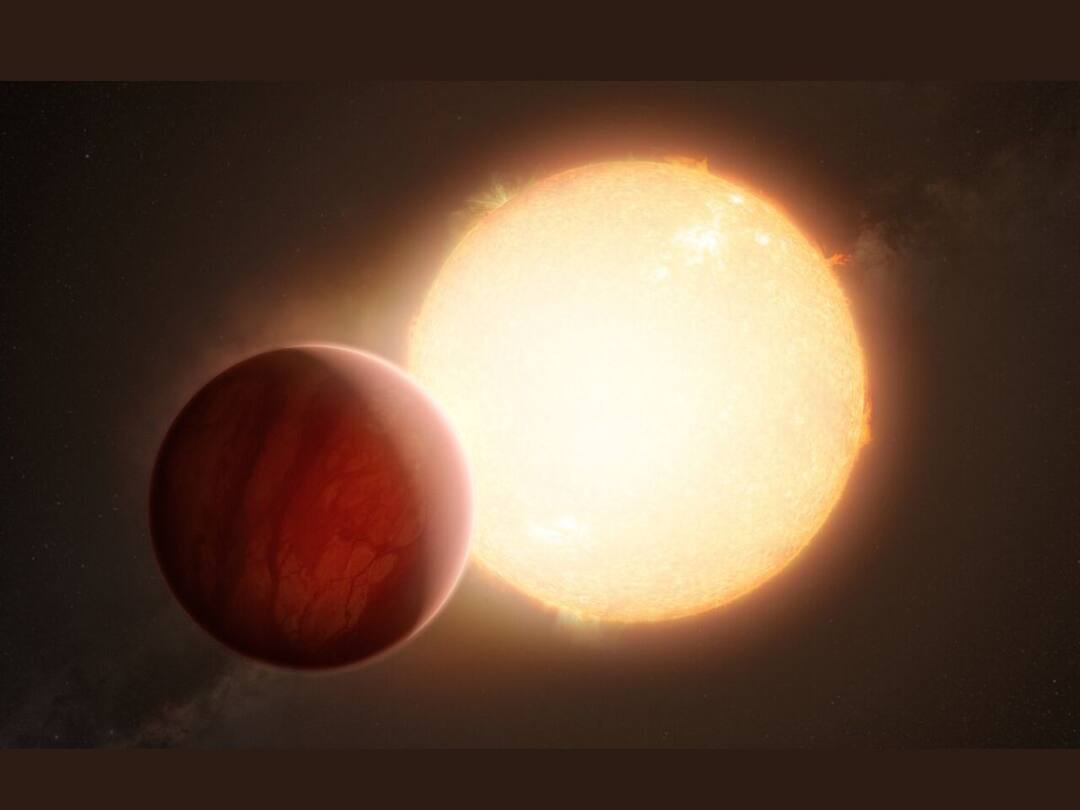Astronomers Detect Heaviest Element Ever Found In An Exoplanet Atmosphere
The element was discovered at high altitudes in the atmospheres of the ultra-hot gas giants WASP-76 b and WASP-121 b. The discovery raises questions about what these exotic atmospheres may be like.

Exoplanets are one of the most intriguing topics in astronomy because of the possibility of them being habitable planets. The James Webb Space Telescope has been unravelling mysteries about different exoplanets since July, 2022. Now, astronomers have detected the heaviest element ever found in an exoplanet atmosphere, using the European Southern Observatory's Very Large Telescope (ESO's VLT).
The element detected in the exoplanet atmosphere is barium.
It was discovered at high altitudes in the atmospheres of the ultra-hot gas giants WASP-76 b and WASP-121 b. The discovery was unexpected, and raises questions about what these exotic atmospheres may be like.
The study describing the findings was recently published in the journal Astronomy & Astrophysics.
The two exoplanets are ultra-hot Jupiters
WASP-76 b and WASP-121 b are not ordinary planets because both are comparable in size to Jupiter and hence, are called ultra-hot Jupiters. These exoplanets have extremely high surface temperatures soaring above 1,000 degrees Celsius. This is because they are located close to their host stars.
Since the exoplanets are close to their host stars, they have an orbital period of one to two days. All these reasons give the planets exotic features. For instance, astronomers suspect it rains iron in WASP-76 b.
ALSO READ | NASA's James Webb Space Telescope Captures Its First Image Of An Exoplanet
What is surprising about this discovery?
The study authors were surprised to find barium in the upper atmospheres of WASP-76 b and WASP-121 b because it is 2.5 times heavier than iron, and is the heaviest element ever detected in an exoplanet atmosphere.
In a statement released by the European Southern Observatory, Tomás Azevedo Silva, the lead author on the paper, said the puzzling and counterintuitive part is why such a heavy element is found in the upper layers of the atmospheres of the exoplanets.
Olivier Demangeon, a co-author on the paper, said given the high gravity of the planets, one would expect heavy elements like barium to quickly fall into the lower layers of the atmosphere. Azevedo Silva said it was an 'accidental' discovery, and that the researchers were not expecting or looking for barium in particular.
What is next?
The discovery of barium in the atmospheres of both the exoplanets suggests that ultra-hot Jupiters may be even stranger than previously thought. Although barium is seen in the skies, as the brilliant green colour in fireworks, the scientists wonder what natural process could cause the heavy element to form at such high altitudes in the two exoplanets.
Ultra-hot Jupiters are extremely useful in the study of exoplanet atmospheres. Demangeon explained that being gaseous and hot, ultra-hot Jupiters' atmospheres are very extended and are thus easier to observe and study than those of smaller or cooler planets.
The researchers used the ESPRESSO instrument on ESO's VLT in Chile to analyse starlight that had been filtered through the atmospheres of WASP-76 b and WASP-121 b, making it possible to clearly detect several elements, including barium.
Future instruments such as the high-resolution ArmazoNes high Dispersion Echelle Spectrograph (ANDES), which will operate on ESO's upcoming Extremely Large Telescope (ELT), will enable astronomers to study the atmospheres of exoplanets, including those of rocky planets similar to Earth, in much greater depth, and to unravel more mysteries about the strange worlds.







































